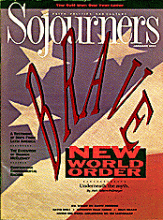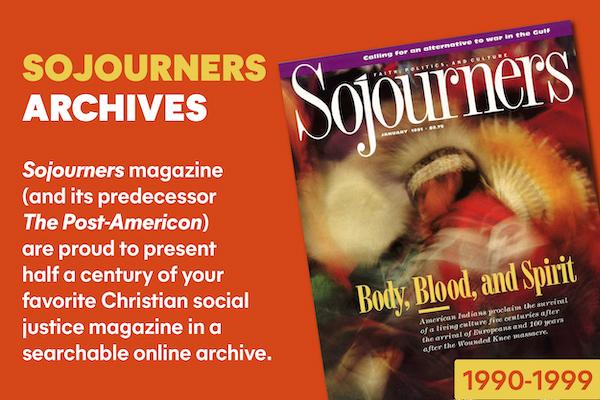1991 marked the 50th anniversary of Orson Welles' Citizen Kane. During the year just past, a restored print of the film classic was released and Welles' unmatched artistic achievement was much discussed in the press.
One of the most memorable scenes in Citizen Kane occurs early on, when the title character, a filthy-rich newspaper mogul modeled on William Randolph Hearst, begins his first venture in newspaper publishing. On the front page of the first edition of Kane's first newspaper, he orders printed, in a boldface box, a "Declaration of Principles" which, he promises, will guide his publishing policies.
This issue of Sojourners marks the fifth anniversary of this column's publication. On this considerably less auspicious occasion, the aging columnist finds his thoughts turning toward things like first principles, guiding philosophies, and other pretensions. Of necessity this column bounces from topic to topic from month to month in a fairly free-floating fashion. And within the confines of this meager page it is often difficult to do more than describe a phenomenon and spew forth a vaguely reasoned opinion about it.
However, behind those five years of opinions, and even behind the choice of 50-odd topics, there is, if not a consistent philosophy, at least a persistent set of assumptions. So this month we will slow down for a moment and look at those underlying assumptions.
THIS COLUMN BEGAN WITH the firm conviction that in America today pop culture is politics and politics is pop culture. Today this conviction, born of the first Reagan term, has only deepened. During the Reagan years, this fact of life was most visible in the remarkable way pop culture--television and movies especially--served as the medium for implementing Reaganaut ideology.
Read the Full Article

